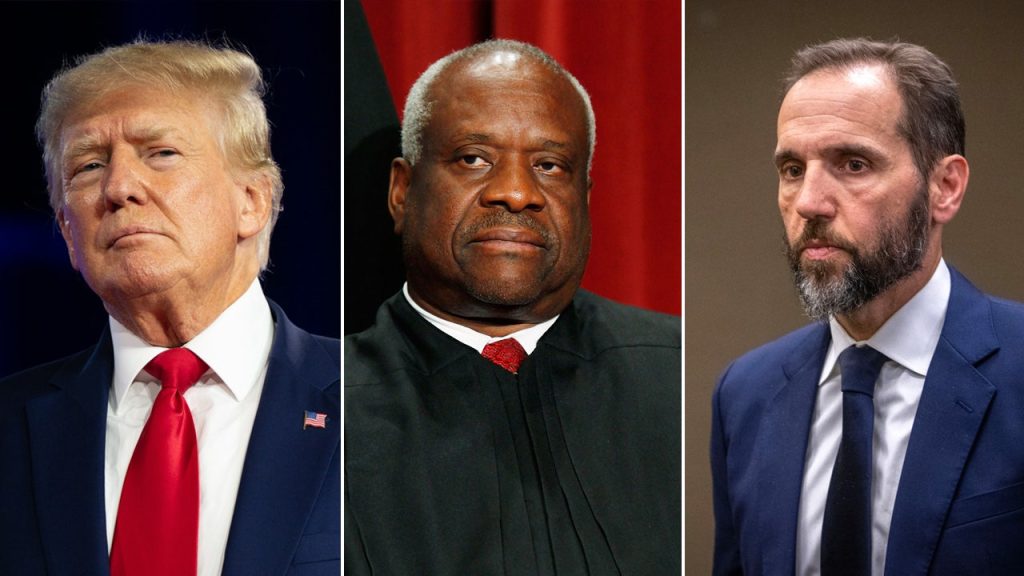Supreme Court Justice Clarence Thomas questioned the authority of Special Counsel Jack Smith to bring charges against former President Donald Trump, and whether Smith was properly appointed. Trump’s attorney argued that Smith did not have the lawful authority to prosecute Trump due to lack of confirmation by the Senate for his position. Former U.S. Attorneys General Meese and Mukasey filed an amicus brief questioning Smith’s authority and argued that the special counsel was not lawfully appointed to bring charges against Trump. They raised concerns about the rule of law and Smith’s unchecked prosecutorial power.
Meese and Mukasey argued that Smith’s appointment as special counsel was unlawful as he was never confirmed by the Senate to any position. They highlighted that the special counsel wields a significant amount of power and is effectively unaccountable to anyone, which raises serious concerns for the rule of law. Trump’s attorneys also contested the legitimacy of Smith’s appointment in charges brought against Trump in the classified documents case in Florida, and questioned the contradictory claims by the special counsel’s office regarding its independence and supervision by the White House and Attorney General.
The special counsel’s office responded to Trump’s claims by arguing that the attorney general has the statutory authority to appoint a special prosecutor, citing a 1974 case involving the prosecutor investigating President Richard Nixon. Meese and Mukasey, however, argued that the Nixon case was not relevant to the present situation and maintained that Smith’s appointment was unlawful, along with all actions stemming from it. They emphasized the necessity of special counsel investigations, but stressed the importance of adhering to the proper legal procedures.
Smith was appointed as special counsel by Attorney General Merrick Garland in 2022, when he was a private citizen, without prior confirmation by the Senate to any position. This differentiates him from other special counsels in recent investigations, such as John Durham and David Weiss, who were confirmed by the Senate before their appointments. The Florida court, where the classified documents case against Trump is being heard, is yet to rule on Trump’s motion to dismiss based on claims of Smith’s improper appointment.
The issue of Smith’s authority to prosecute Trump is central to the arguments being considered by the Supreme Court. Trump’s attorneys have raised concerns about the constitutionality of the special counsel’s appointment and his ability to bring charges against a former president. Meese and Mukasey have underscored the importance of following proper legal procedures in appointments and prosecutions, and have questioned the wide prosecutorial powers wielded by the special counsel without Senate confirmation. The Supreme Court is expected to rule on Trump’s immunity arguments before the end of its term in June.


